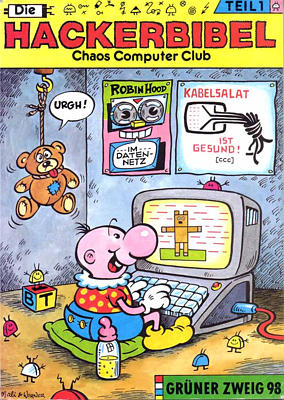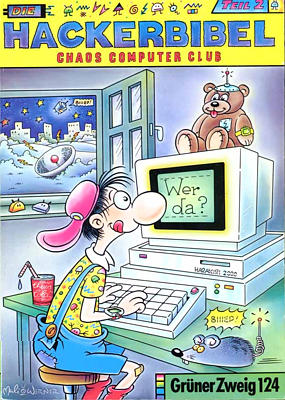Yongming Zhou: Historicizing Online Politics: Telegraphy, the Internet, and Political Participation in China (2006)
Filed under book | Tags: · anthropology, china, history of technology, internet, politics, technology, telegraphy, web

It is widely recognized that internet technology has had a profound effect on political participation in China, but this new use of technology is not unprecedented in Chinese history. This is a pioneering work that systematically describes and analyzes the manner in which the Chinese used telegraphy during the late Qing, and the internet in the contemporary period, to participate in politics.
Drawing upon insights from the fields of anthropology, history, political science, and media studies, this book historicizes the internet in China and may change the direction of the emergent field of Chinese internet studies. In contrast to previous works, this book is unprecedented in its perspective, in the depth of information and understanding, in the conclusions it reaches, and in its methodology. Written in a clear and engaging style, this book is accessible to a broad audience.
Publisher Stanford University Press, 2006
Asian Studies / Political Science series
ISBN 0804751285, 9780804751285
304 pages
Thomas Streeter: The Net Effect: Romanticism, Capitalism, and the Internet (2011)
Filed under book | Tags: · arpanet, capitalism, computing, history of computing, history of technology, internet, neoliberalism, technology

This book about America’s romance with computer communication looks at the internet, not as harbinger of the future or the next big thing, but as an expression of the times. Streeter demonstrates that our ideas about what connected computers are for have been in constant flux since their invention. In the 1950s they were imagined as the means for fighting nuclear wars, in the 1960s as systems for bringing mathematical certainty to the messy complexity of social life, in the 1970s as countercultural playgrounds, in the 1980s as an icon for what’s good about free markets, in the 1990s as a new frontier to be conquered and, by the late 1990s, as the transcendence of markets in an anarchist open source utopia.
The Net Effect teases out how culture has influenced the construction of the internet and how the structure of the internet has played a role in cultures of social and political thought. It argues that the internet’s real and imagined anarchic qualities are not a product of the technology alone, but of the historical peculiarities of how it emerged and was embraced. Finding several different traditions at work in the development of the internet—most uniquely, romanticism—Streeter demonstrates how the creation of technology is shot through with profoundly cultural forces—with the deep weight of the remembered past, and the pressures of shared passions made articulate.
Outstanding Academic Title from 2011 by Choice Magazine.
Publisher NYU Press, 2011
Critical Cultural Communication series
ISBN 0814741169, 9780814741160
221 pages
review (Yuenmei Wong, International Journal of Communication)
Comment (0)Chaos Computer Club (ed.): Die Hackerbibel, 1-2 (1985, 1988) [German]
Filed under book | Tags: · computing, germany, hacker culture, hacking, history of computing, history of technology, internet, machine, networks, privacy, programming, radio, security, technology, telephone, video


“Die Hackerbibel ist eine Publikation des Chaos Computer Clubs. Sie ist bisher in zwei Ausgaben in den Jahren 1985 und 1988 erschienen. Beide Ausgaben wurden von Wau Holland herausgegeben und vom Verlag Grüne Kraft veröffentlicht.
Die Hackerbibel ist ein Sammelsurium aus Dokumenten und Geschichten der Hacker-Szene, wie beispielsweise die Bauanleitung für den als „Datenklo“ betitelten Akustikkoppler. Sie bietet darüber hinaus Bauanleitungen und andere technische Hintergründe. Die 1. Ausgabe erschien 1985 mit dem Untertitel Kabelsalat ist gesund, und erzielte bis Mitte 1988 eine verkaufte Auflage von 25.000 Exemplaren. Die Ausgabe 2 aus dem Jahr 1988 wird auch Das neue Testament genannt. Die Comic-Zeichnungen der Umschlagbilder sind eine Schöpfung der deutschen Comic-Zeichner Mali Beinhorn und Werner Büsch von der Comicwerkstatt Büsch-Beinhorn. Die Produktion und der Vertrieb der Hackerbibel wurde schon vor 1990 eingestellt. Seit 1999 bietet der CCC eine gescannte und im Volltext verfügbare Version mit weiterem Material, wie Texte von Peter Glaser, eine Dokumentation zu Karl Koch und die Arbeiten von Tron, auf der Chaos-CD an.” (wikipedia)
Die Hackerbibel Teil 1. Kabelsalat ist gesund, Grünen Kraft, Löhrbach, ISBN 3922708986, 260 Seiten
Die Hackerbibel Teil 2. Das neue Testament, Grünen Kraft, Löhrbach, ISBN 3925817247, 260 Seiten
PDF (Teil 1, 56 MB, no OCR, updated on 2024-2-3)
HTML (Teil 1, updated on 2024-2-3)
PDF (Teil 2, 43 MB, no OCR, updated on 2024-2-3)
HTML (Teil 2, updated on 2024-2-3)

